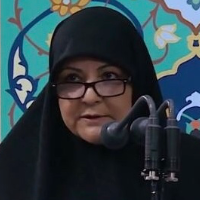Discourse Analysis as a Framework for Identifying the Characteristics of Gender Justice Policy-Making in Iran
Multiplicity of programs, policies, and eventually the laws related to the domain of women and family with the approach of gender justice in number and direction along with the disputes and conflicts of individuals, governmental and non-governmental groups on this issue, indicate that in the process of policy making in the field of women and family there may be problems regarding gender justice. In order to explain the causes of incompatibility and obvious conflicts in gender programs, this study defines a new issue by investigating the policy-making process and its structural features. Furthermore, it seeks to answer these questions: What structures and features does this process include? What model does it follow to influence on outcome policy-making? In this regard, identifying the fact that policy-making is based on a network of formal and informal beneficiary relations and that the final policy-making is the result of harmony or mutual understanding between competitors' interests led the research to consider the discourse of beneficiary involved in policy recommendations by adopting a qualitative methodological approach of "contentious rotation". Findings reveal that the gender justice policy-making process, both due to the influence of the discourse of beneficiaries and due to structural flaws, was led to incoherence and long-term forward-looking planning in this domain.
-
"In the Presence of the Other": Mobile Phone Technology and Insecurity in Marital Life; An Iranian Narrative Unfolding Gender Differences
Elaheh Shabani Afarani *, Masoud Kianpour,
Journal of Cyberspace Studies, Summer-Autumn 2024 -
Models of political education in women politicians and its impact on political competition at the macro levels (the government board and the Islamic Council).
Seyed Ameneh Mir-Khoshkhoo *, Soheila Sadeghi Fasaei
Journal of Political science Association,



